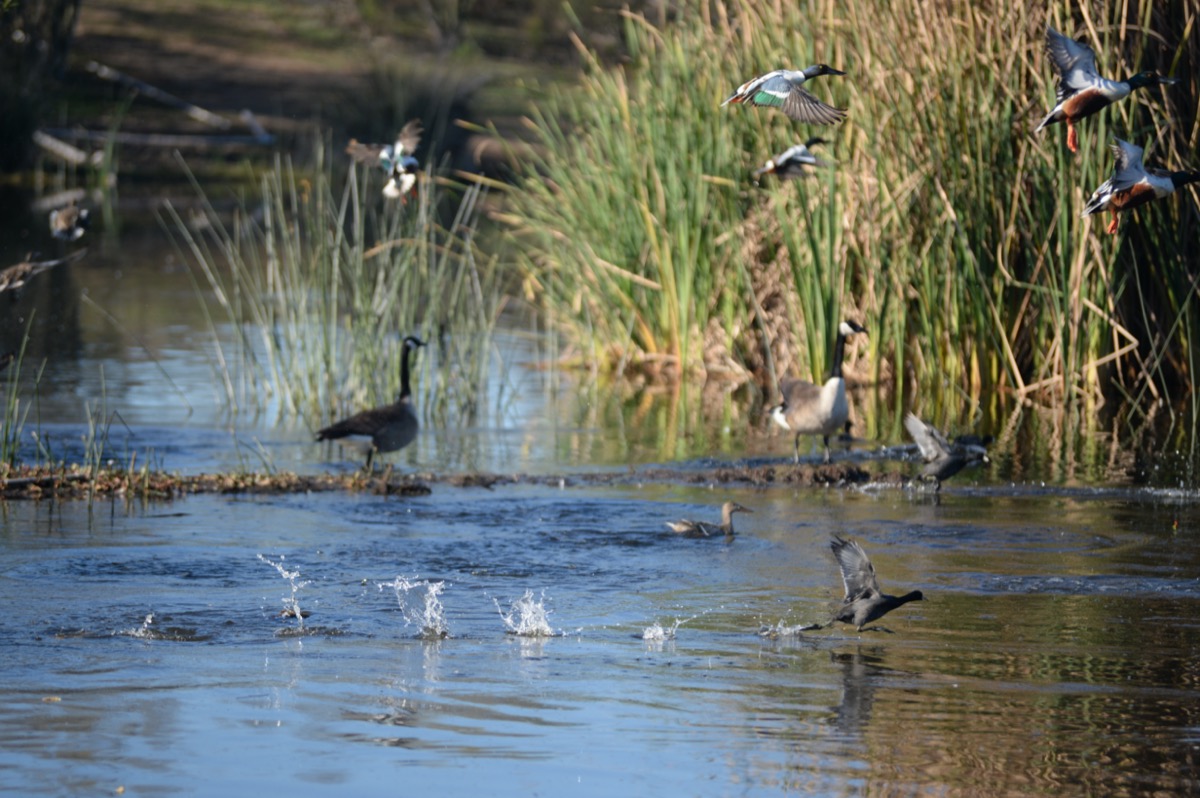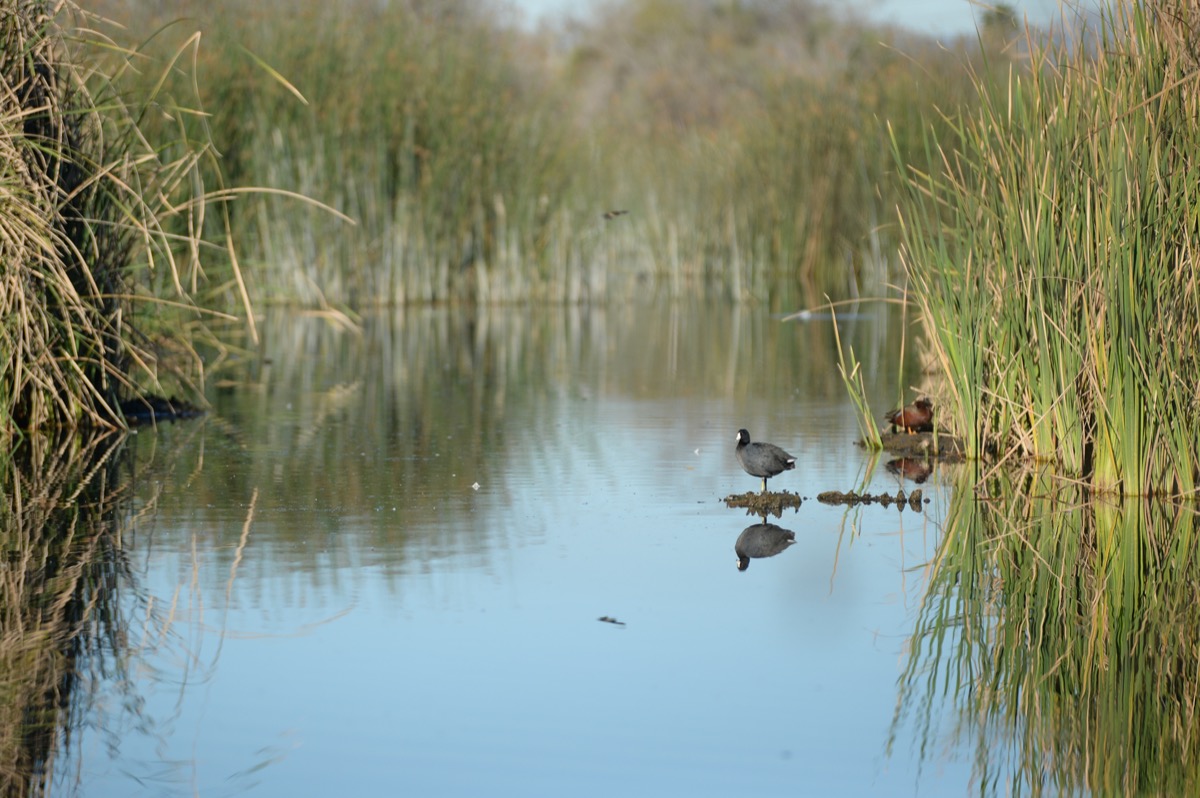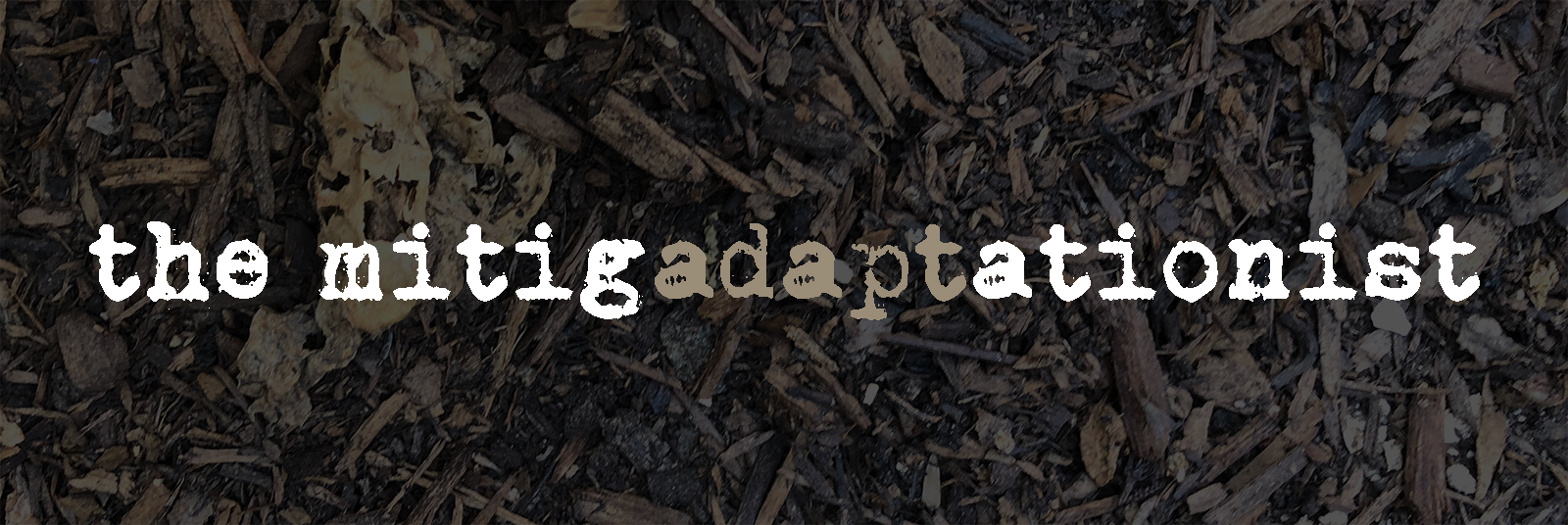
Wetlands are certainly one of those things. (Images by the author.)
Delicate pastel blues and soft buttery yellows illuminated the sky ahead as the lazy winter sun rose. While snow still covered the tops of the surrounding mountains, lower down the colors on them faded from bright whites to browns and greens — hardly a surprise, since temperatures here have been so warm and snow so scarce in this year’s disrupted lead-up to winter. I passed several areas where, in the mid-1990s, I would already have been ice-climbing atop frozen waterfalls at this time of year. Now, they were visibly bone dry with temperatures too warm for ice to form…
I wasn’t so bothered by the legendary Everglades mosquitoes that came out with the spectacular sunset (“You can set your watch to that,” locals say). As they pricked away at exposed skin and whined in my ears, I took it as proof that, for now anyway, the threatened glades biome lives on.
Wired, “Not to Ruin the Super Bowl, but the Sea Is Consuming Miami,” January 31, 2020. The title reveals what we may remember as a characteristic if snarky complaint of our time: can’t we be allowed to enjoy anything anymore? And indeed this article is something of a masterpiece of the moment: a pre-apocalyptic catalogue of all the cataclysms that the water rise have in store for our southernmost metropolis — while insisting all along that there’s no reason not to enjoy the Big Game. Because in 2019, what good would that do… right?
By all means, dear reader, do have a good time!

The reality, in any case, is this:
Part of adapting to climate change no matter how bad it turns out to be will be finding new landscapes and natural systems to love and finding new ways to love new landscapes and natural systems.
Whether it’s primarily an act of heart or one of mind no doubt it will be existentially important to figure out how to do it. For hope and for meaning the children will still need their parents to stand on a mountain or in a rowboat and say, “this here is worthy of your love and protection” — however it compares to what we love and protect now.

0 Comments